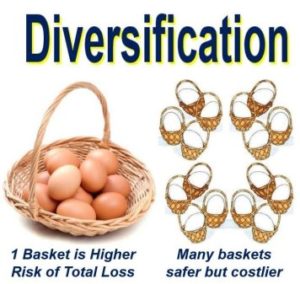Trump vs. Clinton and the Tax Plans We Could End Up With

If someone asked you to explain the differences between the two presidential candidates’ tax plans would you be able give a clear explanation? If you answered “no” most likely you aren’t alone. It’s not uncommon during a presidential election for most voters to be confused at what the candidates are actually promising or proposing. With so much back-and-forth rhetoric, it’s hard to know what each candidate really has in store.
According to Donald Trump, he wants to reduce taxes for everyone in America, especially middle-income Americans. According to numerous reports, Mr. Trump’s plan would reduce the tax system to just three tax brackets, with the top rate dropping from its current mark of 39.6 percent down to 33 percent. He also said that the wealthy would still pay their fair share, but not so much that it hinders the country’s ability to compete.
On the other hand, Hilary Clinton has yet to describe in detail what her tax plans for the middle class would be, or how they would be affected. However, she has made it clear that she wants to raise taxes on the ultra wealthy. Mrs. Clinton has stated that she wants anyone who makes more than a million dollars a year to pay a minimum of 30 percent, whether it’s from income or from capital gains. She would also like anyone who makes more than $5 million to pay an extra 4 percent.
Under Mrs. Clinton’s plan the top 1 percent would end up paying three-fourth’s of the additional taxes being collected, whereas under Mr. Trump’s plan the wealthy would be getting a tax cut of about 5.3 percent. Meantime, both candidates reportedly agree on eliminating the carried interest loophole that offers hedge fund managers a heavily discounted tax rate. Lastly, Mr. Trump wants to eliminate the estate tax completely, while Mrs. Clinton wants to raise it, as well as lower the threshold at which it starts to apply.
http://www.npr.org/2016/09/12/493573601/do-hillary-clinton-and-donald-trumps-tax-proposals-add-up
Reducing Risk With a Diversified Portfolio
Reducing Risk With a Diversified Portfolio Have you been worried about the stock market’s recent volatility? You’re not alone. The stock market in March was a roller-coaster ride that served as a reminder to investors that the market’s ups and downs can be a little dizzying. But a volatile market should not leave you feeling…
Are You Defining Items in QuickBooks Correctly?
[vc_row][vc_column][vc_column_text] Create item records in QuickBooks carefully, and QuickBooks will return the favor by running useful, accurate reports. Figure 1: Clearly-defined items result in precise reports. Obviously, you’re using QuickBooks because you buy and/or sell products and/or services. You want to know at least weekly — if not daily — what’s selling and what’s…
Saving Money for College: Education Credits
Saving Money for College: Education Credits Education credits are tax credits available for qualified education expenses paid by the taxpayer in the furthering of their education. Qualified education expenses are defined as an expense paid during the tax year for tuition and fees required by an eligible educational institution for student enrollment and attendance. Room…
Thinking About Giving up Your U.S. Citizenship? Think Twice
Thinking About Giving up Your U.S. Citizenship? Think Twice While not a lot of people ever entertain the thought of giving up their U.S. citizenship, there are more people every year that are making that choice. Among them are several wealthier people whose main reason for renouncing is to escape the country’s overloaded tax system;…




